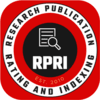Manage Anxiety and Inflammation in Combat Game
Keywords:
Anxiety, Combat, MMA, KungfuAbstract
Combat sports are competitive activities where two opponents engage in physical combat with the goal of achieving victory In Combat Games anxiety is a mental status which affects the performance of an athlete due to individual or due to competition stress, inflammation increases muscle tension & affect coordination, too much tension can affect the difficulties as it may affects attention. Every athlete experiences the Anxiety during/before the competition, there is no doubt that some kind of worry is important to perform well but the amount of anxiety is greater than your mind will be full of negative thoughts & due to expectation of failure athletes’ performance will be surely get effected, athlete participating in an individual sports experience more anxiety rather than team sports. Inflammation can affect the performance in many ways, there are several theories as to how stress affect the performance i.e. Drive Theory inverted you Hypothesis, Individual Zones of Optimal Functioning, Multidimensional anxiety theory, Catastrophe Model, Reversal Theory, Anxiety direction and intensity etc. there are three signs of inflammation & anxiety that is cognitive, somatic & behavioral, its influence can be known by its various symptoms. However, there are many ways/techniques to control the anxiety i.e. The five-breath technique, Benson’s relaxation response, Visualization, Goal Setting, Relaxation Techniques, Cognitive Restructuring, Develop Self-Confidence, Distract Yourself, Focus on That Which You Can Control etc. by following these techniques athletes may get rid from the inflammation /anxiety & increase their performance, this paper contains all the details related to anxiety & methods to control over the anxiety.
References
Baxter AJ, Vos T, Scott KM, Ferrari AJ, Whiteford HA. The global burden of anxiety disorders in 2010. Psychol Med. 2014;44(11):2363–2374.
Jensen P., Roman J., Shaft B., Wrisberg C. In the cage: MMA fighters’ experience of competition. Sport Psychol. 2013;27:1–12. doi: 10.1123/tsp.27.1.1.
Pappas E. Boxing, wrestling, and martial arts related injuries treated in emergency departments in the United States, 2002–2005. J. Sport. Sci. Med. 2007;6:58–61.
Bledsoe G.H., Hsu E.B., Grabowski J.G., Brill J.D., Li G. Incidence of injury in professional mixed martial arts competitions. J. Sport. Sci. Med. 2006;5:136–142.
Buse G.J. No holds barred sport fighting: A 10 year review of mixed martial arts competition. Br. J. Sport. Med. 2006;40:169–172. doi: 10.1136/bjsm.2005.021295.
De Pero R., Minganti C., Pesce C., Capranica L., Piacentini M.F. The relationships between pre-competition anxiety, self-efficacy, and fear of injury in elite teamgym athletes. Kinesiology. 2013;45:63–72.
Kaplan E., Andre H. Investigation of the relationship between mental training and sports injury anxiety. Turk. J. Sport Exerc. 2021;23:1–8.
Mellalieu S.D., Neil R., Hanton S. Self-confidence as a mediator of the relationship between competitive anxiety intensity and interpretation. Res. Q. Exerc. Sport. 2006;77:263–270. doi: 10.1080/02701367.2006.10599359.
Englert C., Bertrams A. Anxiety, ego depletion, and sports performance. J. Sport Exerc. Psychol. 2012;34:580–599. doi: 10.1123/jsep.34.5.580.
Patel D.R., Omar H., Terry M. Sport-related performance anxiety in young female athletes. J. Pediatr. Adolesc. Gynecol. 2010;23:325–335. doi: 10.1016/j.jpag.2010.04.004.
Grossbard J.R., Smith R.E., Smoll F.L., Cumming S.P. Competitive anxiety in young athletes: Differentiating somatic anxiety, worry, and concentration disruption. Anxiety Stress Coping. 2009;22:153–166. doi: 10.1080/10615800802020643.
Radochoński M., Cynarski W., Perenc L., Siorek-Maślanka L. Competitive anxiety and coping strategies in young martial arts and track and field athletes. J. Hum. Kinet. 2011;27:180–189. doi: 10.2478/v10078-011-0014-0.









